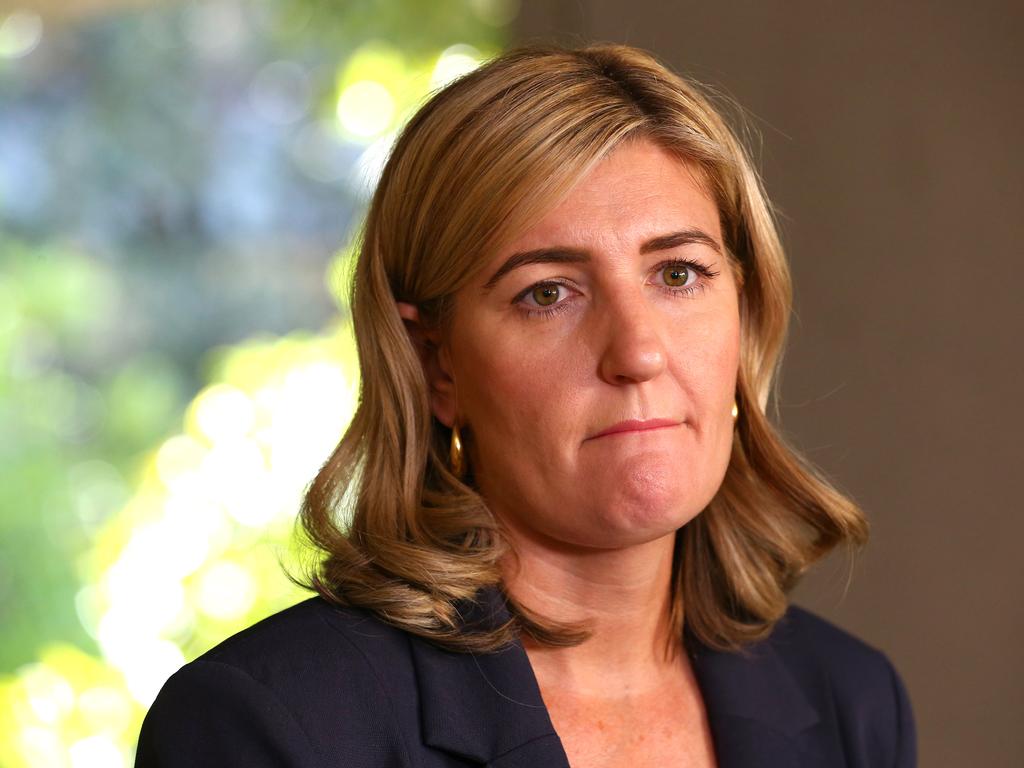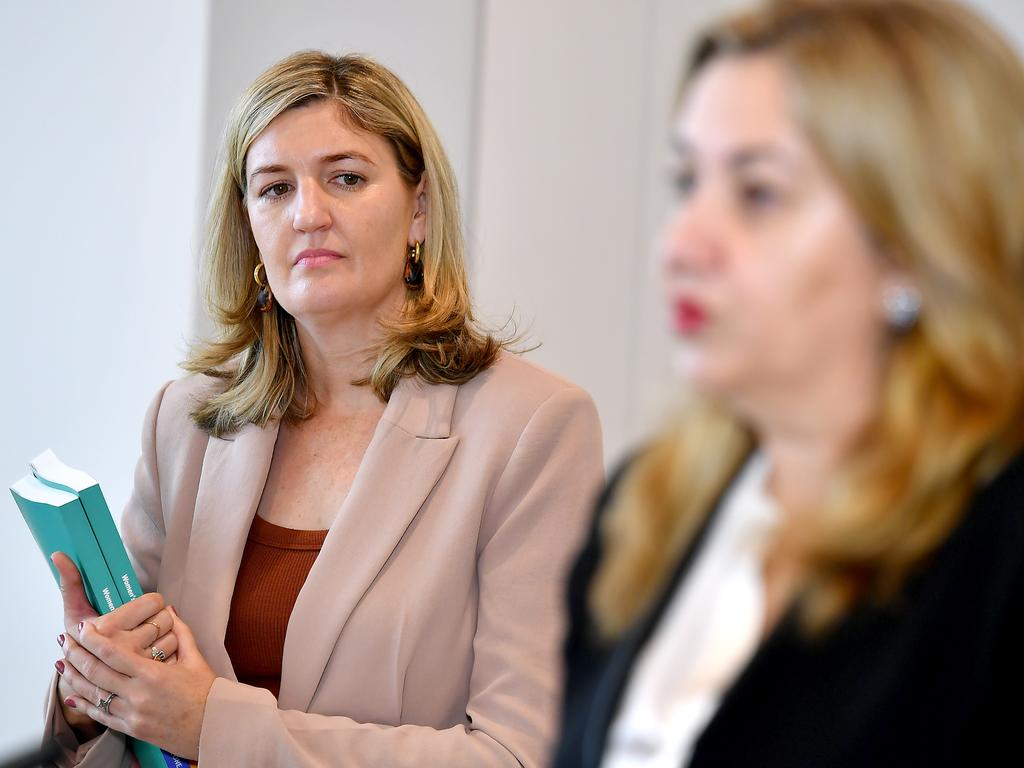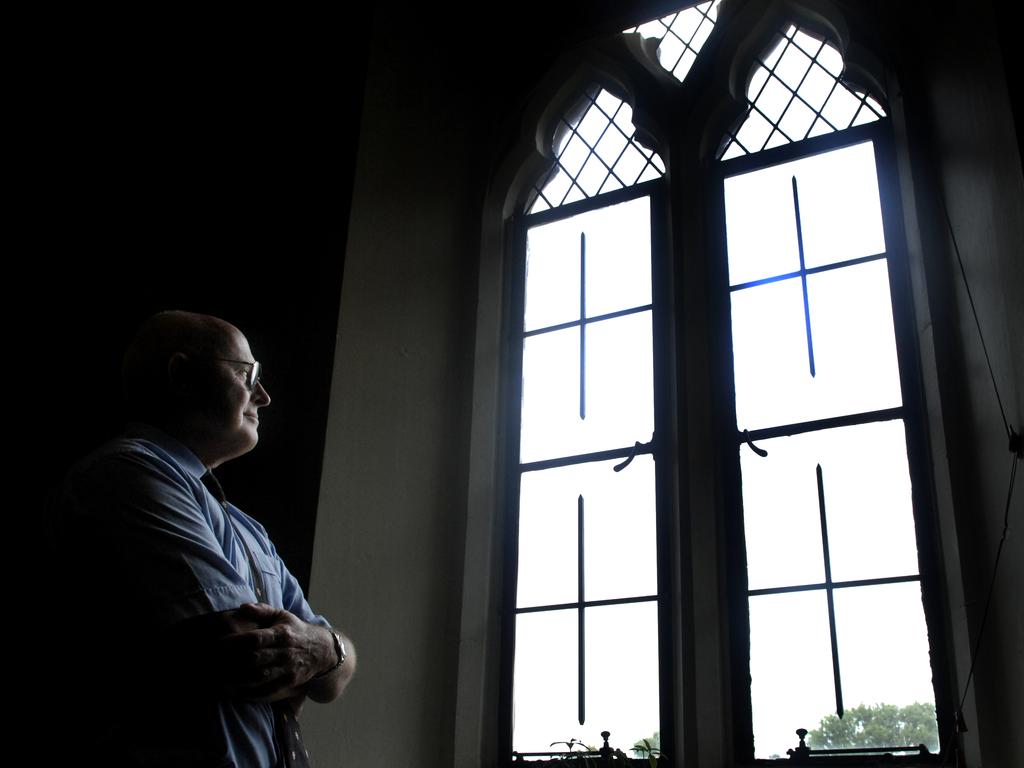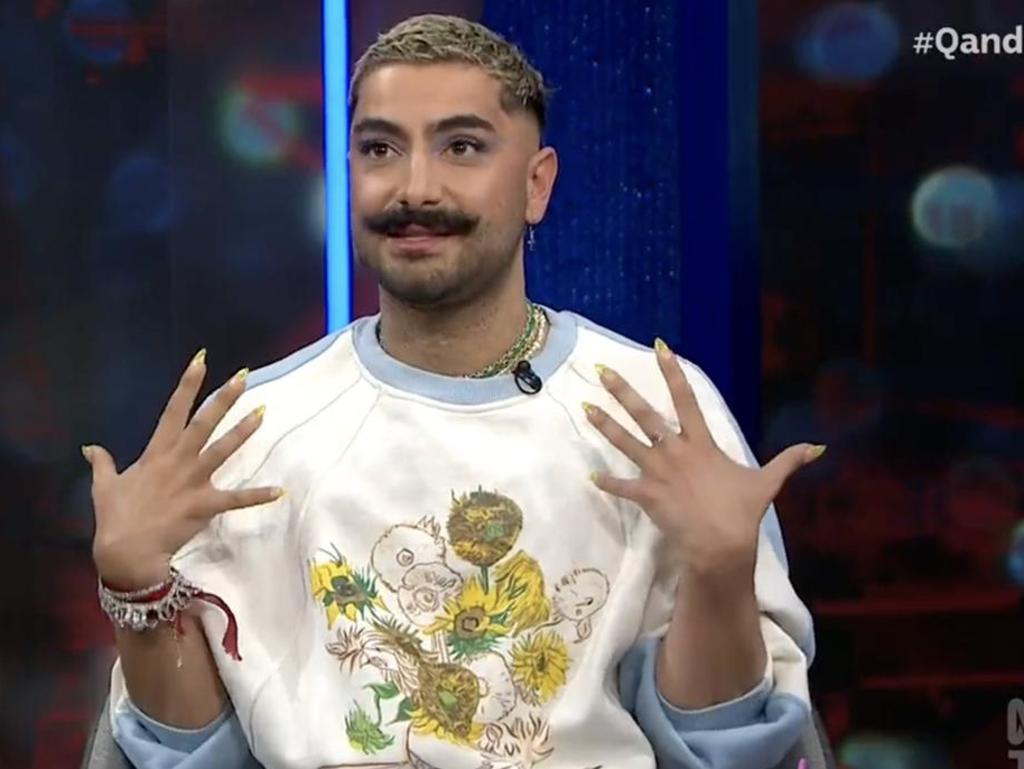
But one would’ve been mistaken. “I know the sticker doesn’t look like it says much, and most people will be lucky enough to be unaffected by what it says,” Fentiman wrote on her Instagram page. “But for some people in our community, these stickers represent much more – they represent a movement which discriminates against them and denies their existence.”
In 1946, George Orwell wrote his classic essay, “Politics and the English Language”, in which he argued “political speech and writing are largely the defence of the indefensible”. Because political speech so often justifies the irrational and inhumane, Orwell wrote, “political language has to consist largely of euphemism, question-begging and sheer cloudy vagueness”.

The sinkhole of vagueness Orwell described has now swallowed up the word “woman”. Instead of meaning “adult human female” – or the half of humanity who have ovaries – politicians such as Fentiman now say a woman is anyone who feels like a woman, even if they come with penis and scrotum. The attempt to change the meaning of the word “woman” is justified by politicians such as Fentiman because it is argued that being a woman is a social role and not a biological category. Any person can become a “woman”, just as any person can become a police officer or a nurse. When it comes to social roles, biology is irrelevant.
Yet for centuries the word “woman” was a biological category and has excluded those with testicles and Y chromosomes. In the human species, to be a woman meant you were not a biological male, and to be a man meant you were not a biological female. This distinction was not a function of bigotry: it was just how the English language worked.
In fact, it was how the English language worked for Shannon Fentiman as recently as last year.
In the Queensland Women’s Strategy 2022-2027, with introductions written by Premier Annastacia Palaszczuk and Fentiman, the words “female” and “women” are used interchangeably.
“With a life expectancy of 84.5 years Queensland’s women have the tenth-highest female life expectancy (in the OECD),” the strategy states. But “female-specific health conditions such as endometriosis are only just beginning to be well understood within the community … This has significant impacts on women’s health”.

If the word “woman” denotes a social role and not a biological category, why would endometriosis have a significant impact on “women’s health”? If the word “woman” does not refer to an adult human female, why doesn’t the strategy discuss prostate or testicular cancer? Doesn’t failing to discuss how scrotal lumps might affect women’s health “discriminate against” and “deny the existence” of members of the community?
It is quite possible the words “female” and “woman” are used interchangeably in the strategy because, as Anthony Albanese recently told Piers Morgan in an interview, the word “woman” denotes an “adult human female” – whether we like it or not.
As Ludwig Wittgenstein explained in Philosophical Investigations, language is an inherently social and public activity, relying on shared meanings and conventions. When I say the word “rose” you know what I mean. The word “rose” conjures up a delicate sphere of finely layered petals perhaps in red, pink or yellow, attached to a green stalk with prickly thorns.

According to Wittgenstein, I cannot choose a subjective meaning for “rose” and you cannot choose a subjective meaning for “blue”. Meaning, therefore, is communally defined. Now, some might argue there is a community that defines the word “woman” as a social role, and not a biological category, and this community has the right to use the word in the way it wishes. I would argue that this is true.
In a free society, trans activists and their allies can use the word “woman” to refer to anybody in a dress or wig, but they have no right to coerce the rest of us to share in their alternative language.
Yet this coercion is exactly what is happening across the world and across the states of Australia. While some commentators have argued that trans issues are frivolous, when politicians pass laws that up-end the shared meaning of words, and essentially legislate lies, the matter stops being frivolous very quickly.
In several Australian states one can – or will soon be able to – update one’s birth certificate to state “woman” or “female” even if one has fully intact male sexual organs and XY chromosomes. On Thursday, Fentiman was sworn in as Queensland’s Minister for Health, just one week after she told reporters “anyone who identifies as a woman is a woman”. Will this new appointment mean Queensland women will soon be encouraged to have regular prostate examinations? When visiting women’s health clinics will women be asked if they would like to have their sperm count checked?
Anything less would be an admission that the word “woman” does not refer to a social role. And just like a rose is not a lily, and blue is not yellow, women are not men. They are adult human females.
Claire Lehmann is founding editor of online magazine Quillette.







“Woman. Noun. Adult human female,” read the sticker applied to Queensland MP Shannon Fentiman’s office window. Walking past the window at the Waterford Shopping Centre in Logan, one might have assumed the sticker belonged to Fentiman. She was, until Thursday, Queensland’s Minister for Women.